Arthur Miller is a Actor and Scriptwriter born on 17 october 1915

Arthur Asher Miller (October 17, 1915 – February 10, 2005) was a prolific American playwright, essayist, and prominent figure in twentieth-century American theatre. Among his most popular plays are All My Sons (1947), Death of a Salesman (1949), The Crucible (1953) and A View from the Bridge (1955, revised 1956). He also wrote several screenplays and was most noted for his work on The Misfits (1961). The drama Death of a Salesman is often numbered on the short list of finest American plays in the 20th century alongside Long Day's Journey into Night and A Streetcar Named Desire.
Miller was often in the public eye, particularly during the late 1940s, 1950s and early 1960s. During this time, he was awarded the Pulitzer Prize for Drama; testified before the House Un-American Activities Committee; and was married to Marilyn Monroe. He received the Prince of Asturias Award and the Praemium Imperiale prize in 2002 and the Jerusalem Prize in 2003, as well as the Dorothy and Lillian Gish Lifetime Achievement Award and the Pulitzer Prize.
Arthur Asher Miller was born on October 17, 1915, in Harlem, in the New York City borough of Manhattan, the second of three children of Augusta (Barnett) and Isidore Miller. His father was an Austrian Jewish immigrant, and his mother was born in New York, to Austrian Jewish parents. His father owned a women's clothing manufacturing business employing 400 people. He became a wealthy and respected man in the community. The family, including his younger sister Joan, lived on West 110th Street in Manhattan, owned a summer house in Far Rockaway, Queens, and employed a chauffeur. In the Wall Street Crash of 1929, the family lost almost everything and moved to Gravesend, Brooklyn. As a teenager, Miller delivered bread every morning before school to help the family. After graduating in 1932 from Abraham Lincoln High School, he worked at several menial jobs to pay for his college tuition.
At the University of Michigan, Miller first majored in journalism and worked for the student paper, the Michigan Daily. It was during this time that he wrote his first play, No Villain. Miller switched his major to English, and subsequently won the Avery Hopwood Award for No Villain. The award brought him his first recognition and led him to begin to consider that he could have a career as a playwright. Miller enrolled in a playwriting seminar taught by the influential Professor Kenneth Rowe, who instructed him in his early forays into playwriting; Rowe emphasized how a play is built in order to achieve its intended effect, or what Miller called "the dynamics of play construction". Rowe provided realistic feedback along with much-needed encouragement, and became a lifelong friend. Miller retained strong ties to his alma mater throughout the rest of his life, establishing the university's Arthur Miller Award in 1985 and Arthur Miller Award for Dramatic Writing in 1999, and lending his name to the Arthur Miller Theatre in 2000. In 1937, Miller wrote Honors at Dawn, which also received the Avery Hopwood Award.
After his graduation in 1938, he joined the Federal Theater Project, a New Deal agency established to provide jobs in the theater. He chose the theater project despite the more lucrative offer to work as a scriptwriter for 20th Century Fox. However, Congress, worried about possible Communist infiltration, closed the project in 1939. Miller began working in the Brooklyn Navy Yard while continuing to write radio plays, some of which were broadcast on CBS.
Early career
In 1940, he married Mary Grace Slattery. The couple had two children, Jane and Robert (born May 31, 1947). Miller was exempted from military service during World War II because of a high-school football injury to his left kneecap.
1940 was also the year his first play was produced; The Man Who Had All the Luck won the Theatre Guild's National Award. The play closed after four performances with disastrous reviews.
In 1947, Miller's play All My Sons, the writing of which had commenced in 1941, was a success on Broadway (earning him his first Tony Award, for Best Author) and his reputation as a playwright was established. Years later, in a 1994 interview with Ron Rifkin, Miller said that most contemporary critics regarded All My Sons as "a very depressing play in a time of great optimism" and that positive reviews from Brooks Atkinson of The New York Times had saved it from failure.
In 1948, Miller built a small studio in Roxbury, Connecticut. There, in less than a day, he wrote Act I of Death of a Salesman. Within six weeks, he completed the rest of the play, one of the classics of world theater. Death of a Salesman premiered on Broadway on February 10, 1949 at the Morosco Theatre, directed by Elia Kazan, and starring Lee J. Cobb as Willy Loman, Mildred Dunnock as Linda, Arthur Kennedy as Biff, and Cameron Mitchell as Happy. The play was commercially successful and critically acclaimed, winning a Tony Award for Best Author, the New York Drama Circle Critics' Award, and the Pulitzer Prize for Drama. It was the first play to win all three of these major awards. The play was performed 742 times.
In 1949, Miller exchanged letters with Eugene O'Neill regarding Miller's production of All My Sons. O'Neill had sent Miller a congratulatory telegram; in response, he wrote a letter that consisted of a few paragraphs detailing his gratitude for the telegram, apologizing for not responding earlier, and inviting Eugene to the opening of Death of a Salesman. O'Neill replied, accepting the apology, but declining the invitation, explaining that his Parkinson's disease made it difficult to travel. He ended the letter with an invitation to Boston, which never occurred.
The critical years
In 1956, a one-act version of Miller's verse drama A View from the Bridge opened on Broadway in a joint bill with one of Miller's lesser-known plays, A Memory of Two Mondays. The following year, Miller revised A View from the Bridge as a two-act prose drama, which Peter Brook directed in London. A French-Italian co-production Vu du pont, based on the play, was released in 1962.
In June 1956, Miller left his first wife Mary Slattery and on June 29 he married Marilyn Monroe. Miller and Monroe had met in April 23, 1951, when they had a brief affair, and had remained in contact since then.
Miller began work on The Misfits, starring his wife. Miller later said that the filming was one of the lowest points in his life; shortly before the film's premiere in 1961, the pair divorced. 19 months later, Monroe died of a possible drug overdose. Miller's future wife Inge Morath worked as a photographer documenting the film's production. The film proved to be the last appearances for both Monroe and Clark Gable, and one of the last for Montgomery Clift.
Miller married photographer Inge Morath on February 17, 1962 and the first of their two children, Rebecca, was born September 15, 1962. Their son Daniel was born with Down syndrome in November 1966; he was institutionalized and excluded from the Millers' personal life at Arthur's insistence. The couple remained together until Inge's death in 2002. Arthur Miller's son-in-law, actor Daniel Day-Lewis, is said to have visited Daniel frequently, and to have persuaded Arthur Miller to reunite with his adult son, Daniel.
HUAC controversy and "The Crucible"
In 1952, Elia Kazan appeared before the House Un-American Activities Committee (HUAC); unwilling to risk his promising career in Hollywood for the Communist cause that he had come to despise, Kazan named eight members of the Group Theatre, including Clifford Odets, Paula Strasberg, Lillian Hellman, J. Edward Bromberg, and John Garfield, who in recent years had been fellow members of the Communist Party. After speaking with Kazan about his testimony, Miller traveled to Salem, Massachusetts to research the witch trials of 1692. The Crucible, in which Miller likened the situation with the House Un-American Activities Committee to the witch hunt in Salem in 1692, opened at the Beck Theatre on Broadway on January 22, 1953. Though widely considered only somewhat successful at the time of its initial release, today The Crucible is Miller's most frequently produced work throughout the world and was adapted into an opera by Robert Ward, which won the Pulitzer Prize for Music in 1962. Miller and Kazan were close friends throughout the late 1940s and early 1950s, but after Kazan's testimony to the HUAC, the pair's friendship ended, and they did not speak to each other for the next ten years. The HUAC took an interest in Miller himself not long after The Crucible opened, denying him a passport to attend the play's London opening in 1954. Kazan defended his own actions through his film On the Waterfront, in which a dockworker heroically testifies against a corrupt union boss.
When Miller applied in 1956 for a routine renewal of his passport, the House Unamerican Activities Committee used this opportunity to subpoena him to appear before the committee. Before appearing, Miller asked the committee not to ask him to name names, to which the chairman, Francis E. Walter (D-PA) agreed.
When Miller attended the hearing, to which Monroe accompanied him, risking her own career, he gave the committee a detailed account of his political activities. Reneging on the chairman's promise, the committee demanded the names of friends and colleagues who had participated in similar activities. Miller refused to comply, saying "I could not use the name of another person and bring trouble on him." As a result, a judge found Miller guilty of contempt of Congress in May 1957. Miller was sentenced to a $500 fine or thirty days in prison, blacklisted, and disallowed a US passport. In 1958, his conviction was overturned by the court of appeals, which ruled that Miller had been misled by the chairman of the HUAC.
Miller's experience with the HUAC affected him throughout his life. In the late 1970s he became very interested in the highly publicized Barbara Gibbons murder case, in which Gibbons' son Peter Reilly was convicted of his mother's murder based on what many felt was a coerced confession and little other evidence. City Confidential, an A&E Network series, produced an episode about the murder, postulating that part of the reason Miller took such an active interest (including supporting Reilly's defense and using his own celebrity to bring attention to Reilly's plight) was because he had felt similarly persecuted in his run-ins with the HUAC. He sympathized with Reilly, whom he firmly believed to be innocent and to have been railroaded by the Connecticut State Police and the Attorney General who had initially prosecuted the case.
Later career
In 1964 After the Fall was produced, and is said to be a deeply personal view of Miller's experiences during his marriage to Monroe. The play reunited Miller with his former friend Kazan: they collaborated on both the script and the direction. After the Fall opened on January 23, 1964 at the ANTA Theatre in Washington Square Park amid a flurry of publicity and outrage at putting a Monroe-like character, called Maggie, on stage. Robert Brustein, in a review in the New Republic, called After the Fall "a three and one half hour breach of taste, a confessional autobiography of embarrassing explicitness . . . there is a misogynistic strain in the play which the author does not seem to recognize. . . . He has created a shameless piece of tabloid gossip, an act of exhibitionism which makes us all voyeurs, . . . a wretched piece of dramatic writing." That same year, Miller produced Incident at Vichy. In 1965, Miller was elected the first American president of PEN International, a position which he held for four years. A year later, Miller organized the 1966 PEN congress in New York City. Miller also wrote the penetrating family drama, The Price, produced in 1968. It was Miller's most successful play since Death of a Salesman.
In 1969, Miller's works were banned in the Soviet Union after he campaigned for the freedom of dissident writers. Throughout the 1970s, Miller spent much of his time experimenting with the theatre, producing one-act plays such as Fame and The Reason Why, and traveling with his wife, producing In The Country and Chinese Encounters with her. Both his 1972 comedy The Creation of the World and Other Business and its musical adaptation, Up from Paradise, were critical and commercial failures.
Miller was an unusually articulate commentator on his own work. In 1978 he published a collection of his Theater Essays, edited by Robert A. Martin and with a foreword by Miller. Highlights of the collection included Miller's introduction to his Collected Plays, his reflections on the theory of tragedy, comments on the McCarthy Era, and pieces arguing for a publicly supported theater. Reviewing this collection in the Chicago Tribune, Studs Terkel remarked, "in reading [the Theater Essays]...you are exhilaratingly aware of a social critic, as well as a playwright, who knows what he's talking about."
In 1983, Miller traveled to China to produce and direct Death of a Salesman at the People's Art Theatre in Beijing. The play was a success in China and in 1984, Salesman in Beijing, a book about Miller's experiences in Beijing, was published. Around the same time, Death of a Salesman was made into a TV movie starring Dustin Hoffman as Willy Loman. Shown on CBS, it attracted 25 million viewers. In late 1987, Miller's autobiographical work,
Timebends, was published. Before it was published, it was well known that Miller would not talk about Monroe in interviews; in Timebends Miller talks about his experiences with Monroe in detail.
During the early-mid 1990s, Miller wrote three new plays: The Ride Down Mt. Morgan (1991), The Last Yankee (1992), and Broken Glass (1994). In 1996, a film of The Crucible starring Daniel Day-Lewis, Paul Scofield, Bruce Davison, and Winona Ryder opened. Miller spent much of 1996 working on the screenplay to the film.
Mr. Peters' Connections was staged Off-Broadway in 1998, and Death of a Salesman was revived on Broadway in 1999 to celebrate its fiftieth anniversary. The play, once again, was a large critical success, winning a Tony Award for best revival of a play.
In 1993, he was awarded the National Medal of Arts. Miller was honored with the PEN/Laura Pels International Foundation for Theater Award for a Master American Dramatist in 1998. In 2001 the National Endowment for the Humanities (NEH) selected Miller for the Jefferson Lecture, the U.S. federal government's highest honor for achievement in the humanities. Miller's lecture was entitled "On Politics and the Art of Acting."
Miller's lecture analyzed political events (including the U.S. presidential election of 2000)
in terms of the "arts of performance," and it drew attacks from some conservatives such as Jay Nordlinger, who called it "a disgrace,"
and George Will, who argued that Miller was not legitimately a "scholar."
In 1999, Miller was awarded The Dorothy and Lillian Gish Prize, one of the richest prizes in the arts, given annually to "a man or woman who has made an outstanding contribution to the beauty of the world and to mankind’s enjoyment and understanding of life." In 2001, Miller received the National Book Foundation's Medal for Distinguished Contribution to American Letters. On May 1, 2002, Miller was awarded Spain's Principe de Asturias Prize for Literature as "the undisputed master of modern drama." Later that year, Ingeborg Morath died of lymphatic cancer at the age of 78. The following year Miller won the Jerusalem Prize.
In December 2004, the 89-year-old Miller announced that he had been in love with 34-year-old minimalist painter Agnes Barley and had been living with her at his Connecticut farm since 2002, and that they intended to marry. Within hours of her father's death, Rebecca Miller ordered Barley to vacate the premises, having consistently opposed the relationship. Miller's final play, Finishing the Picture, opened at the Goodman Theatre, Chicago, in the fall of 2004, with one character said to be based on Barley. It was reported to be based on his experience during the filming The Misfits, though Miller insisted the play is a work of fiction with independent characters that were no more than composite shadows of history.
Death
Miller died of heart failure after suffering from cancer, pneumonia and congestive heart disease, at his home in Roxbury, Connecticut. He had been in hospice care at his sister's apartment in New York since his release from hospital the previous month. He died on the evening of February 10, 2005 (the 56th anniversary of the Broadway debut of Death of a Salesman), aged 89, surrounded by Barley, family and friends. He is interred at Roxbury Center Cemetery in Roxbury.
Source : Wikidata
Arthur Miller

- Infos
- Photos
- Best films
- Family
- Characters
- Awards
Birth name Arthur Asher Miller
Birth 17 october 1915
Death 10 february 2005 (at 89 years)
Birth 17 october 1915
Death 10 february 2005 (at 89 years)
Miller was often in the public eye, particularly during the late 1940s, 1950s and early 1960s. During this time, he was awarded the Pulitzer Prize for Drama; testified before the House Un-American Activities Committee; and was married to Marilyn Monroe. He received the Prince of Asturias Award and the Praemium Imperiale prize in 2002 and the Jerusalem Prize in 2003, as well as the Dorothy and Lillian Gish Lifetime Achievement Award and the Pulitzer Prize.
Biography
Early lifeArthur Asher Miller was born on October 17, 1915, in Harlem, in the New York City borough of Manhattan, the second of three children of Augusta (Barnett) and Isidore Miller. His father was an Austrian Jewish immigrant, and his mother was born in New York, to Austrian Jewish parents. His father owned a women's clothing manufacturing business employing 400 people. He became a wealthy and respected man in the community. The family, including his younger sister Joan, lived on West 110th Street in Manhattan, owned a summer house in Far Rockaway, Queens, and employed a chauffeur. In the Wall Street Crash of 1929, the family lost almost everything and moved to Gravesend, Brooklyn. As a teenager, Miller delivered bread every morning before school to help the family. After graduating in 1932 from Abraham Lincoln High School, he worked at several menial jobs to pay for his college tuition.
At the University of Michigan, Miller first majored in journalism and worked for the student paper, the Michigan Daily. It was during this time that he wrote his first play, No Villain. Miller switched his major to English, and subsequently won the Avery Hopwood Award for No Villain. The award brought him his first recognition and led him to begin to consider that he could have a career as a playwright. Miller enrolled in a playwriting seminar taught by the influential Professor Kenneth Rowe, who instructed him in his early forays into playwriting; Rowe emphasized how a play is built in order to achieve its intended effect, or what Miller called "the dynamics of play construction". Rowe provided realistic feedback along with much-needed encouragement, and became a lifelong friend. Miller retained strong ties to his alma mater throughout the rest of his life, establishing the university's Arthur Miller Award in 1985 and Arthur Miller Award for Dramatic Writing in 1999, and lending his name to the Arthur Miller Theatre in 2000. In 1937, Miller wrote Honors at Dawn, which also received the Avery Hopwood Award.
After his graduation in 1938, he joined the Federal Theater Project, a New Deal agency established to provide jobs in the theater. He chose the theater project despite the more lucrative offer to work as a scriptwriter for 20th Century Fox. However, Congress, worried about possible Communist infiltration, closed the project in 1939. Miller began working in the Brooklyn Navy Yard while continuing to write radio plays, some of which were broadcast on CBS.
Early career
In 1940, he married Mary Grace Slattery. The couple had two children, Jane and Robert (born May 31, 1947). Miller was exempted from military service during World War II because of a high-school football injury to his left kneecap.
1940 was also the year his first play was produced; The Man Who Had All the Luck won the Theatre Guild's National Award. The play closed after four performances with disastrous reviews.
In 1947, Miller's play All My Sons, the writing of which had commenced in 1941, was a success on Broadway (earning him his first Tony Award, for Best Author) and his reputation as a playwright was established. Years later, in a 1994 interview with Ron Rifkin, Miller said that most contemporary critics regarded All My Sons as "a very depressing play in a time of great optimism" and that positive reviews from Brooks Atkinson of The New York Times had saved it from failure.
In 1948, Miller built a small studio in Roxbury, Connecticut. There, in less than a day, he wrote Act I of Death of a Salesman. Within six weeks, he completed the rest of the play, one of the classics of world theater. Death of a Salesman premiered on Broadway on February 10, 1949 at the Morosco Theatre, directed by Elia Kazan, and starring Lee J. Cobb as Willy Loman, Mildred Dunnock as Linda, Arthur Kennedy as Biff, and Cameron Mitchell as Happy. The play was commercially successful and critically acclaimed, winning a Tony Award for Best Author, the New York Drama Circle Critics' Award, and the Pulitzer Prize for Drama. It was the first play to win all three of these major awards. The play was performed 742 times.
In 1949, Miller exchanged letters with Eugene O'Neill regarding Miller's production of All My Sons. O'Neill had sent Miller a congratulatory telegram; in response, he wrote a letter that consisted of a few paragraphs detailing his gratitude for the telegram, apologizing for not responding earlier, and inviting Eugene to the opening of Death of a Salesman. O'Neill replied, accepting the apology, but declining the invitation, explaining that his Parkinson's disease made it difficult to travel. He ended the letter with an invitation to Boston, which never occurred.
The critical years
In 1956, a one-act version of Miller's verse drama A View from the Bridge opened on Broadway in a joint bill with one of Miller's lesser-known plays, A Memory of Two Mondays. The following year, Miller revised A View from the Bridge as a two-act prose drama, which Peter Brook directed in London. A French-Italian co-production Vu du pont, based on the play, was released in 1962.
In June 1956, Miller left his first wife Mary Slattery and on June 29 he married Marilyn Monroe. Miller and Monroe had met in April 23, 1951, when they had a brief affair, and had remained in contact since then.
Miller began work on The Misfits, starring his wife. Miller later said that the filming was one of the lowest points in his life; shortly before the film's premiere in 1961, the pair divorced. 19 months later, Monroe died of a possible drug overdose. Miller's future wife Inge Morath worked as a photographer documenting the film's production. The film proved to be the last appearances for both Monroe and Clark Gable, and one of the last for Montgomery Clift.
Miller married photographer Inge Morath on February 17, 1962 and the first of their two children, Rebecca, was born September 15, 1962. Their son Daniel was born with Down syndrome in November 1966; he was institutionalized and excluded from the Millers' personal life at Arthur's insistence. The couple remained together until Inge's death in 2002. Arthur Miller's son-in-law, actor Daniel Day-Lewis, is said to have visited Daniel frequently, and to have persuaded Arthur Miller to reunite with his adult son, Daniel.
HUAC controversy and "The Crucible"
In 1952, Elia Kazan appeared before the House Un-American Activities Committee (HUAC); unwilling to risk his promising career in Hollywood for the Communist cause that he had come to despise, Kazan named eight members of the Group Theatre, including Clifford Odets, Paula Strasberg, Lillian Hellman, J. Edward Bromberg, and John Garfield, who in recent years had been fellow members of the Communist Party. After speaking with Kazan about his testimony, Miller traveled to Salem, Massachusetts to research the witch trials of 1692. The Crucible, in which Miller likened the situation with the House Un-American Activities Committee to the witch hunt in Salem in 1692, opened at the Beck Theatre on Broadway on January 22, 1953. Though widely considered only somewhat successful at the time of its initial release, today The Crucible is Miller's most frequently produced work throughout the world and was adapted into an opera by Robert Ward, which won the Pulitzer Prize for Music in 1962. Miller and Kazan were close friends throughout the late 1940s and early 1950s, but after Kazan's testimony to the HUAC, the pair's friendship ended, and they did not speak to each other for the next ten years. The HUAC took an interest in Miller himself not long after The Crucible opened, denying him a passport to attend the play's London opening in 1954. Kazan defended his own actions through his film On the Waterfront, in which a dockworker heroically testifies against a corrupt union boss.
When Miller applied in 1956 for a routine renewal of his passport, the House Unamerican Activities Committee used this opportunity to subpoena him to appear before the committee. Before appearing, Miller asked the committee not to ask him to name names, to which the chairman, Francis E. Walter (D-PA) agreed.
When Miller attended the hearing, to which Monroe accompanied him, risking her own career, he gave the committee a detailed account of his political activities. Reneging on the chairman's promise, the committee demanded the names of friends and colleagues who had participated in similar activities. Miller refused to comply, saying "I could not use the name of another person and bring trouble on him." As a result, a judge found Miller guilty of contempt of Congress in May 1957. Miller was sentenced to a $500 fine or thirty days in prison, blacklisted, and disallowed a US passport. In 1958, his conviction was overturned by the court of appeals, which ruled that Miller had been misled by the chairman of the HUAC.
Miller's experience with the HUAC affected him throughout his life. In the late 1970s he became very interested in the highly publicized Barbara Gibbons murder case, in which Gibbons' son Peter Reilly was convicted of his mother's murder based on what many felt was a coerced confession and little other evidence. City Confidential, an A&E Network series, produced an episode about the murder, postulating that part of the reason Miller took such an active interest (including supporting Reilly's defense and using his own celebrity to bring attention to Reilly's plight) was because he had felt similarly persecuted in his run-ins with the HUAC. He sympathized with Reilly, whom he firmly believed to be innocent and to have been railroaded by the Connecticut State Police and the Attorney General who had initially prosecuted the case.
Later career
In 1964 After the Fall was produced, and is said to be a deeply personal view of Miller's experiences during his marriage to Monroe. The play reunited Miller with his former friend Kazan: they collaborated on both the script and the direction. After the Fall opened on January 23, 1964 at the ANTA Theatre in Washington Square Park amid a flurry of publicity and outrage at putting a Monroe-like character, called Maggie, on stage. Robert Brustein, in a review in the New Republic, called After the Fall "a three and one half hour breach of taste, a confessional autobiography of embarrassing explicitness . . . there is a misogynistic strain in the play which the author does not seem to recognize. . . . He has created a shameless piece of tabloid gossip, an act of exhibitionism which makes us all voyeurs, . . . a wretched piece of dramatic writing." That same year, Miller produced Incident at Vichy. In 1965, Miller was elected the first American president of PEN International, a position which he held for four years. A year later, Miller organized the 1966 PEN congress in New York City. Miller also wrote the penetrating family drama, The Price, produced in 1968. It was Miller's most successful play since Death of a Salesman.
In 1969, Miller's works were banned in the Soviet Union after he campaigned for the freedom of dissident writers. Throughout the 1970s, Miller spent much of his time experimenting with the theatre, producing one-act plays such as Fame and The Reason Why, and traveling with his wife, producing In The Country and Chinese Encounters with her. Both his 1972 comedy The Creation of the World and Other Business and its musical adaptation, Up from Paradise, were critical and commercial failures.
Miller was an unusually articulate commentator on his own work. In 1978 he published a collection of his Theater Essays, edited by Robert A. Martin and with a foreword by Miller. Highlights of the collection included Miller's introduction to his Collected Plays, his reflections on the theory of tragedy, comments on the McCarthy Era, and pieces arguing for a publicly supported theater. Reviewing this collection in the Chicago Tribune, Studs Terkel remarked, "in reading [the Theater Essays]...you are exhilaratingly aware of a social critic, as well as a playwright, who knows what he's talking about."
In 1983, Miller traveled to China to produce and direct Death of a Salesman at the People's Art Theatre in Beijing. The play was a success in China and in 1984, Salesman in Beijing, a book about Miller's experiences in Beijing, was published. Around the same time, Death of a Salesman was made into a TV movie starring Dustin Hoffman as Willy Loman. Shown on CBS, it attracted 25 million viewers. In late 1987, Miller's autobiographical work,
Timebends, was published. Before it was published, it was well known that Miller would not talk about Monroe in interviews; in Timebends Miller talks about his experiences with Monroe in detail.
During the early-mid 1990s, Miller wrote three new plays: The Ride Down Mt. Morgan (1991), The Last Yankee (1992), and Broken Glass (1994). In 1996, a film of The Crucible starring Daniel Day-Lewis, Paul Scofield, Bruce Davison, and Winona Ryder opened. Miller spent much of 1996 working on the screenplay to the film.
Mr. Peters' Connections was staged Off-Broadway in 1998, and Death of a Salesman was revived on Broadway in 1999 to celebrate its fiftieth anniversary. The play, once again, was a large critical success, winning a Tony Award for best revival of a play.
In 1993, he was awarded the National Medal of Arts. Miller was honored with the PEN/Laura Pels International Foundation for Theater Award for a Master American Dramatist in 1998. In 2001 the National Endowment for the Humanities (NEH) selected Miller for the Jefferson Lecture, the U.S. federal government's highest honor for achievement in the humanities. Miller's lecture was entitled "On Politics and the Art of Acting."
Miller's lecture analyzed political events (including the U.S. presidential election of 2000)
in terms of the "arts of performance," and it drew attacks from some conservatives such as Jay Nordlinger, who called it "a disgrace,"
and George Will, who argued that Miller was not legitimately a "scholar."
In 1999, Miller was awarded The Dorothy and Lillian Gish Prize, one of the richest prizes in the arts, given annually to "a man or woman who has made an outstanding contribution to the beauty of the world and to mankind’s enjoyment and understanding of life." In 2001, Miller received the National Book Foundation's Medal for Distinguished Contribution to American Letters. On May 1, 2002, Miller was awarded Spain's Principe de Asturias Prize for Literature as "the undisputed master of modern drama." Later that year, Ingeborg Morath died of lymphatic cancer at the age of 78. The following year Miller won the Jerusalem Prize.
In December 2004, the 89-year-old Miller announced that he had been in love with 34-year-old minimalist painter Agnes Barley and had been living with her at his Connecticut farm since 2002, and that they intended to marry. Within hours of her father's death, Rebecca Miller ordered Barley to vacate the premises, having consistently opposed the relationship. Miller's final play, Finishing the Picture, opened at the Goodman Theatre, Chicago, in the fall of 2004, with one character said to be based on Barley. It was reported to be based on his experience during the filming The Misfits, though Miller insisted the play is a work of fiction with independent characters that were no more than composite shadows of history.
Death
Miller died of heart failure after suffering from cancer, pneumonia and congestive heart disease, at his home in Roxbury, Connecticut. He had been in hospice care at his sister's apartment in New York since his release from hospital the previous month. He died on the evening of February 10, 2005 (the 56th anniversary of the Broadway debut of Death of a Salesman), aged 89, surrounded by Barley, family and friends. He is interred at Roxbury Center Cemetery in Roxbury.
Best films
Usually with
Filmography of Arthur Miller (27 films)
Actor
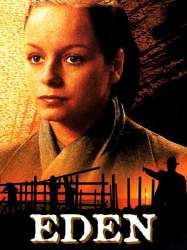
Eden (2001)
Directed by Amos Gitaï
Origin Israel
Genres Drama, War, Romance
Actors Samantha Morton, Thomas Jane, Danny Huston, Daphna Kastner, Arthur Miller
Roles Father
Rating47%





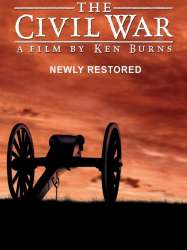
The Civil War (1990)
Directed by Ken Burns
Genres Documentary
Themes Documentary films about war, Documentary films about historical events, Political films
Actors Sam Waterston, Julie Harris, Jason Robards, Morgan Freeman, Garrison Keillor, Arthur Miller
Roles William Tecumseh Sherman
Rating89%





"La guerre de sécession" est un film documentaire réalisé par l'Américain Ken Burns sur la guerre de Sécession. Le documentaire dure 11 heures, découpé en neuf épisodes. Episode 1 : La cause Episode 2 : L'impasse sanglante Episode 3 : Libres, à jamais Episode 4 : Un meurtre, tout simplement Episode 5 : L’enfer des combats Episode 6 : La vallée de l'ombre de la mort Episode 7 : Terre sanctifiée Episode 8 : La guerre, c'est l'enfer Episode 9 : Les meilleurs anges de notre nature

The Congress (1988)
, 1h30Directed by Ari Folman, Ken Burns
Origin USA
Genres Documentary, Historical
Themes Documentary films about historical events, Documentary films about politics, Political films
Actors Arthur Miller, Ronnie Gilbert, Derek Jacobi, Garrison Keillor
Roles Self
Rating71%





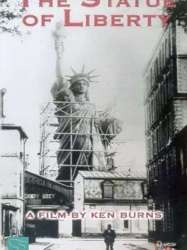
The Statue of Liberty (1985)
, 1hDirected by Ken Burns
Origin USA
Genres Documentary, Action, Adventure, Historical
Themes Documentary films about historical events, Documentary films about cities
Actors Jeremy Irons, Derek Jacobi, Arthur Miller, Miloš Forman
Roles Self (voice)
Rating72%





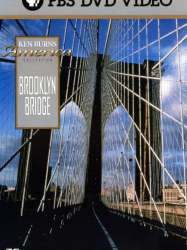
Brooklyn Bridge (1981)
, 58minutesDirected by Ken Burns
Origin USA
Genres Documentary, Historical
Themes Documentary films about historical events, Documentary films about cities
Actors Julie Harris, Arthur Miller
Roles Self (voice)
Rating74%





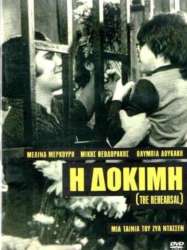
The Rehearsal (1974)
, 1h32Directed by Jules Dassin
Genres Drama, Documentary, Historical
Actors Jules Dassin, Olympia Dukakis, Laurence Olivier, Stathis Giallelis, Lillian Hellman, Melina Mercouri
Roles Self
Rating68%






Money Talks (1972)
, 1h21Directed by Allen Funt
Origin USA
Genres Comedy
Actors Henny Youngman, Arthur Miller, Marian Mercer
Roles Self
Rating58%





This script must be run from the command line

The Face of Genius (1966)
Origin USA
Genres Documentary
Themes Films about writers, Documentaire sur une personnalité
Actors Jason Robards, Arthur Miller, José Quintero
Roles Self (archive footage)

Boomerang! (1947)
, 1h28Directed by Elia Kazan
Origin USA
Genres Drama, Documentary, Noir, Crime
Themes Prison films, Films about capital punishment
Actors Dana Andrews, Jane Wyatt, Lee J. Cobb, Ed Begley, Cara Williams, Karl Malden
Roles Line-Up Suspect
Rating71%





A priest is shot dead on a Bridgeport, Connecticut street at night. The police, led by Chief Robinson (Cobb), fail to immediately find the murderer. It soon becomes a political hot potato, with the police accused of incompetence, and the city's reform-minded administration comes under attack. Robinson and the prosecutor Henry Harvey (Andrews) come under severe pressure by political leaders to find the killer or bring in outside help.
Scriptwriter
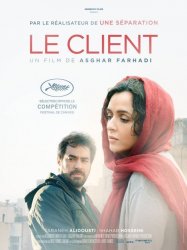
The Salesman (2016)
, 2h5Directed by Asghar Farhadi
Origin France
Genres Drama, Thriller
Actors Taraneh Allidousti, Shahab Hosseini, Babak Karimi
Rating76%





Emad, professeur, et Rana forment un jeune couple qui prépare une représentation de la pièce de théâtre Mort d'un commis voyageur d'Arthur Miller. À la suite de travaux d'aménagement qui a endommagé leur appartement, ils doivent déménager et sur les conseils d'un ami ils emménagent dans un nouvel appartement. Celui-ci était occupé précédemment par une prostituée ; la venue d'un ancien client va changer leurs vies.

Focus (2001)
, 1h46Origin USA
Genres Drama
Themes Films about religion, Films about Jews and Judaism
Actors William H. Macy, Laura Dern, David Paymer, Meat Loaf, Kenneth Welsh, Peter Oldring
Roles Novel
Rating66%





In the waning months of World War II, a man is mistakenly identified as a Jew by his antisemitic Brooklyn neighbors. Suddenly the victims of religious and racial persecution, he finds himself aligned with a local Jewish immigrant in a struggle for dignity and survival.

Eden (2001)
Directed by Amos Gitaï
Origin Israel
Genres Drama, War, Romance
Actors Samantha Morton, Thomas Jane, Danny Huston, Daphna Kastner, Arthur Miller
Roles Novel
Rating47%





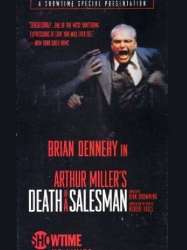
Death of a Salesman (2000)
Directed by Kirk Browning
Genres Drama
Themes Films based on plays
Actors Brian Dennehy, Elizabeth Franz, Ron Eldard, Stephanie March, Laura Moss
Roles Writer
Rating79%





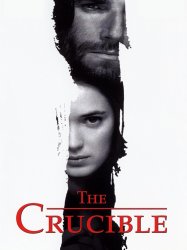
The Crucible (1996)
, 2h4Directed by Nicholas Hytner
Origin USA
Genres Drama, Historical
Themes Films about magic and magicians, Prison films, Films about religion, Witches in film, Films about capital punishment, Films based on plays, Children's films
Actors Daniel Day-Lewis, Winona Ryder, Paul Scofield, Joan Allen, Jeffrey Jones, Peter Vaughan
Roles Theatre Play
Rating67%





Early morning in 1692 Salem, Massachusetts, some young village girls meet in the woods with a Barbadian slave named Tituba (Charlayne Woodard). One of the girls, Abigail Williams (Winona Ryder), kills a chicken and drinks the blood, wishing for John Proctor's wife to die. They are surprised by Abigail's uncle, Reverend Samuel Parris (Bruce Davison), who discovers them. As the girls run away, Parris' daughter, Betty (Rachael Bella), falls over unconscious.

Death of a Salesman (1996)
Origin United-kingdom
Genres Drama
Themes Films based on plays
Actors Warren Mitchell, Rosemary Harris, Iain Glen, Owen Teale, James Grout, Ian Hogg
Roles Theatre Play
Rating75%





 Connection
Connection






